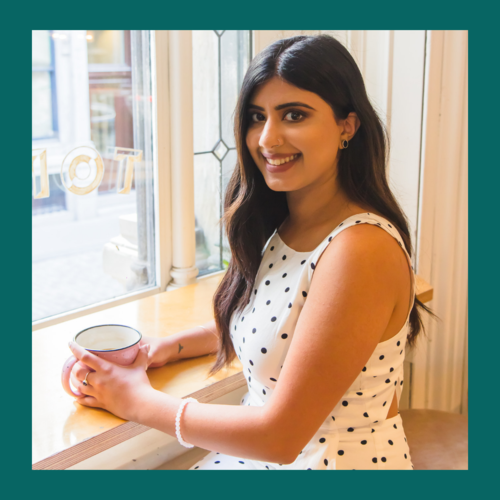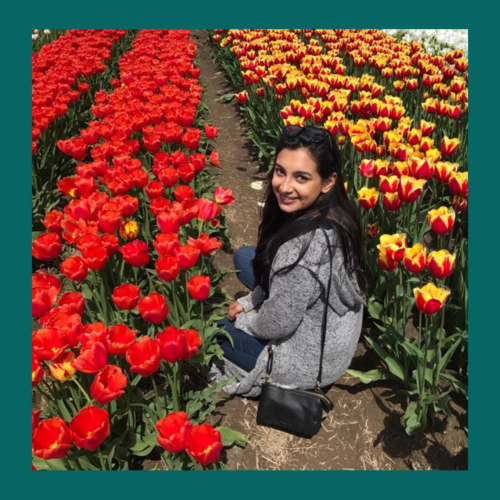Desi Innovators: Harpo, Simran, and Nimrat Dare To Be Sincere With Khulke, “ A Podcast For All Generations”
“[My dad] survived for us, but I am trying to live.” (Hasan Minhaj, Patriot Act)
This could not resonate more in the digital age. With the rise of social media and advancements in technology, it feels as though the gap between the older and younger generations could not be wider. South Asian families spend less time talking at the dinner table and the younger generation actively look for innovative ways to avoid starting dialogue with their parents. How could the older generation possibly begin to understand what we go through? They not only grew up in a different country but in a different decade. It has become immensely difficult to bridge that gap.
PC: @khulkepodcast
That is why Khulke, a podcast for all generations, is so necessary. Especially with the reignition of the black lives matter movement, we need these conversations more than ever.
Harpo, Simran, and Nimrat, created this project in 2019 with the goal to foster conversation and aptly named it Khulke, which translates to "open" in Hindi.
What really sets this podcast apart is the fact that Nimrat, Simran’s mom, fills the space of the older generation which is often neglected in these conversations. By being a life and leadership coach to businesses in the area, Nimrat is able to provide the tools and vocabulary necessary for facilitating and participating in important dialogue about difficult topics.
“We used to come out and hang out all the time at auntie’s (Nimrat) house,” says Harpo, reminiscing on the beginnings of Khulke. Nimrat frequently sat in on the conversations Simran and Harpo used to have and was reminded of how she used to talk to her own friends the same way when she was a teenager.
“As the older generation, I was fascinated and I just saw so many similarities on what they talked about and what I would have talked about at that age,” says Nimrat.
I think of my mom and envision a younger version of herself in India, sitting around her school friends discussing boys, periods, and social issues. I never really took the time to think about my mom as a teenage girl and I think that many children of immigrants haven't either. We assume that the atmosphere our parents grew up in is vastly different from what we are growing up in—but we fail to realize that even they had to experience growing up and eventually question their own identities. That's the perspective that is missing from conversations on the immigrant experience: it is the voice of the older generation. Khulke strives to bridge that gap between generations.
Photo of Nimrat
“All we want is our kids to be happy… we can never really understand [your version of happiness] because you are growing up in a different time with different tools... so when you stop and you listen... you might have a chance to get to that underneath place and find the similarities,” says Nimrat.
As a child of immigrants, I know how difficult it can be to talk to your parents about important issues such as mental health. But having these conversations is necessary for a greater societal and cultural change, so that the next generation can easily talk to their elders. There are too many South Asians children who have trouble connecting with the older generation because of the lack of being open on both sides.
I think this podcast presents an opportunity. By listening to the podcast, children of immigrants may feel inspired and introduced to the idea that maybe the only thing lacking from having open conversations with their older family members is an example of inter generational dialogue.
Photo of Harpo
“[my dad] has been a certain way for a really long time so when I present [my dad] with new information,.. It’s going to be difficult for him and he is going to be hesitant. I like Khulke in the way that it is set up is because we are meeting people with compassion and empathy [and] not just [ saying,] 'you’re wrong,'” Harpo explains.
“People don’t know how to experience or process [emotion]. They think it’s going to be so painful so they rather repress it,” says Nimrat on why many South Asians avoid heavier topics and feelings.
Khulke demonstrates how South Asians and others no longer have to live with the pain of avoiding difficult topics and emotions. It is not easy bringing up topics like anti-blackness but it is so necessary for the betterment of all communities. And by encouraging empathy instead of hate, it is possible. This approach is especially pivotal in addressing the toxic masculinity in a lot of South Asian communities.
“We have been conscious of making this a space that is safe for men to also listen to... I don’t think that men have very many self-care or self-love centered podcasts or any sort content that either folds them into the conversation or is relevant enough for them as well,” Harpo says.
The disparity that exists between males and females in the South Asian community is something the Khulke hosts intimately recognize. Brown girls are taught to be “domesticated”, as coined by Nimrat, whereas boys are given far more freedom to do what they want.
With that, they are rarely questioned for their behavior no matter how harmful it may be. It is so necessary to include them in the conversation of toxic masculinity so they can recognize their privilege.
Photo of Simran
“Taking personal responsibility… you have to take responsibility for yourself and your own actions everyday and [be] very conscious of what you are choosing to do, what you are choosing not to do,” Simran explains.
That goes for addressing anti-blackness in communities as well. The first step is addressing your privilege and starting those conversations with the people around you despite it being challenging.
Simran offers advice to young South Asians who are trying to speak to their family but are fearful of any animosity: “When you avoid the conversation or it’s weighing on you, that almost makes the weight on yourself even heavier… The avoidance of that is even heavier. Even if you are going to get shut down, at least you can say you did your best and you tried... Whatever small way that you can start [the conversation].”
The desire to start these conversations goes back to the very meaning of the name of the podcast, Khulke, which translates to “open." They encourage all of their listeners to “listen khulke, speak khulke, and think khulke.”
Because of the stigma and fear that is instilled in South Asians about discussing certain topics such as menstruation or anti-blackness, being open is something that is incredibly challenging even though it should be a norm in most communities.
Even though Harpo, Simran, and Nimrat were up for the challenge of being open, it wasn’t easy.
“The fear is of being judged and having my words out there forever for people to listen to … As the older generation, I am not used to sharing a lot of things,” says Nimrat.
Simran disagrees, “I'm not a very public person.”
Nimrat and Simran share a glance, surprised that they share this similarity.
It is this kind of interaction that Khulke is great at facilitating, ones in which misconceptions are dissolved and replaced by understanding. It all starts with speaking up and realizing that our assumptions are not always true and often only revolve around our differences.
Especially on topics such as anti-blackness, there can be a lot of doubt on whether or not what they were saying was appropriate.
“We wanted to be socially and politically correct as well… You want to make sure you are making space as you are taking space,” Harpo explains as to why the Black Lives Matter episode was the most difficult.
“And I think there is a fragility to it… we are talking about the unlearn. When we look at ourselves, there is a fragility to it, there is an unease… there is a shame…,” explains Nimrat on the very personal discomfort they may face addressing these important topics.
Figuring out when to make space or take space can be difficult but Khulke overcomes that in being mindful of the social situations, and being honest. Sometimes it means admitting that they do not know everything.
And although some topics, like the one on anti-blackness, can lead to a “vulnerability headache,” as Nimrat coined, it is often worth it if it means that someone is sitting down with their parents and finally starting the dialogue.
“Go to your parents or like your friend, and [ask], did you know this… and it sparks this entire discussion,” says Harpo in what they hope listeners get from the podcast.
For listeners, this podcast can be incredibly informative, especially when they have professionals as guests, but they also admit that this is a learning experience for them as well.
“I just want to sit back and listen… it’s like a learning opportunity for us, really,” says Harpo. When they have guests, Khulke truly feels to me like a therapy session where all three are learning and unlearning.
Aside from being an educational experience, Khulke also serves as an “audio diary of [their] life,” says Simran.
Harpo continues, “We have recorded most of our episodes in very major life transitions for each of us… some of us are moving, some of us are starting businesses, some of us are breaking up.”
Seeing three women of color confront life head-on while at the same time generating necessary dialogue about the topics they care about is what makes the podcast so different.
The Internet can often create a whirlpool of judgement, where many people assume that public figures can never change and have never changed. Khulke is fearless in the sense that all three hosts document their growth as they go through big life moments. They are not afraid to admit that they do not know everything and that they too are figuring out how to deal with the various obstacles of life like the rest of us.
It is refreshing and necessary to see three South Asian women embrace change.
“I’m also just evolving and growing and I am who I am at that moment and I might be different in a future moment,” says Nimrat.
With the desire to keep pushing the barrier of what it means to be “open”, Khulke hopes to introduce a slew of other “taboo” topics such as sex and depression.
But they also hope to continue this conversation beyond a podcast through a blog and their book club on Instagram.
They continue to create an uplifting community of South Asians of all ages, who are actively engaging in dialogue.
“If every child or teenager or young adult could just talk to their parents openly...that would create community-wide change.” Nimrat says.
“The whole point is that we make the space for the dialogue and that we participate in it from the best we can do from our perspective and to encourage everybody else to do the same thing,” says Simran.
From bridging gaps between generations, discussing topics such as anti-blackness, and confronting toxic masculinity, Khulke continues to create opportunities for those in South Asian communities to “listen, speak, and think Khulke.”
Where to find Khulke:
Listen to Khulke here:





